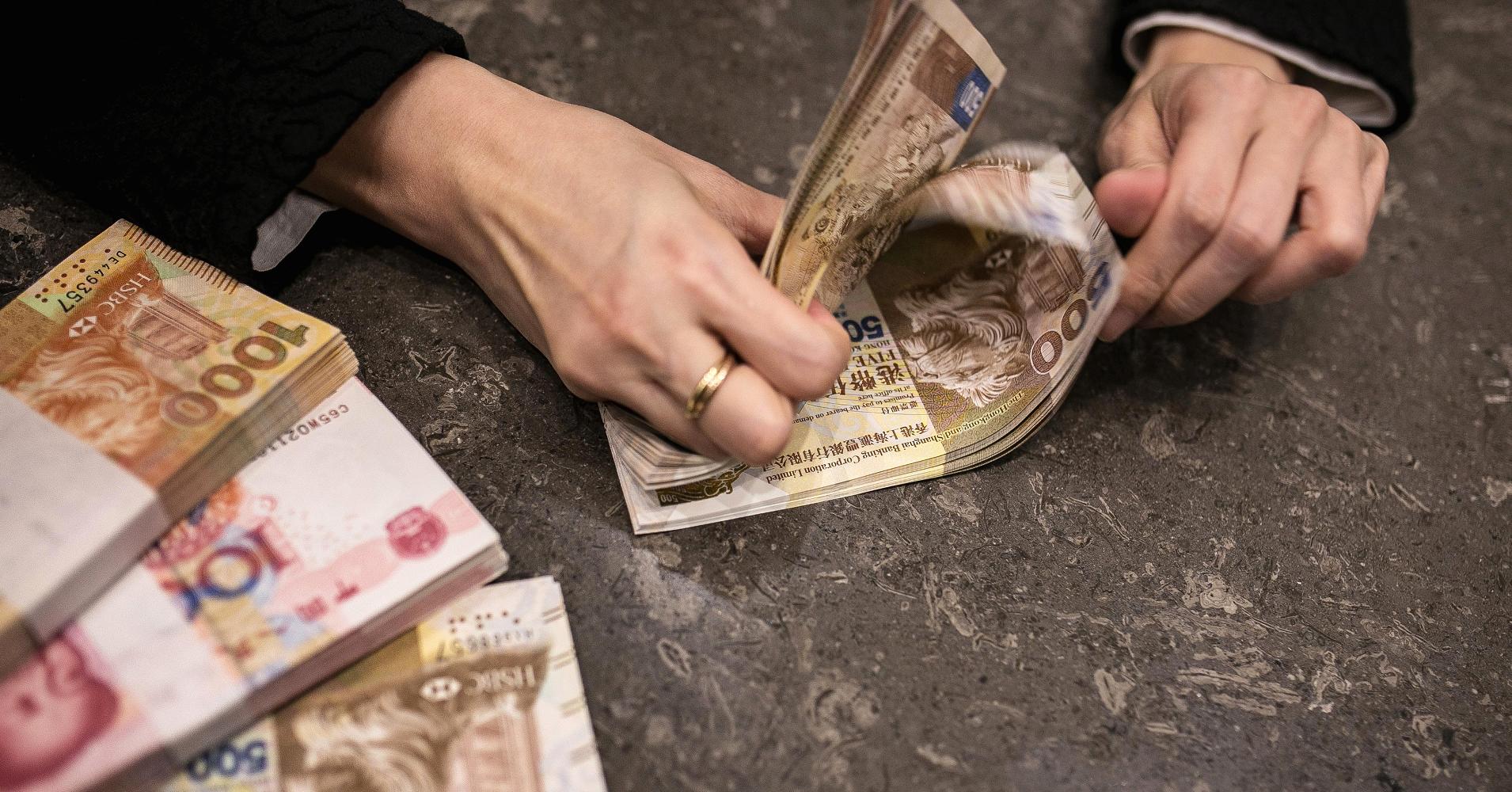Hong Kong is raising its guard against the threat of money laundering as its vulnerability to financial crimes is seen on the rise.
The city, long an oasis of good government and transparent finance in a region that often struggles with corruption and illicit money dealings, is well aware of its reputation and wants to keep it.
In a report released at the end of April, Hong Kong rates its ability to fight dirty money flows as “medium-high,” citing its strong legal system, political commitment to the issue, and cooperation between the public and private sectors.
But the very strengths that give the city economic dynamism — such as openness to financial flows and the sheer size of the banking system — can also be weaknesses.
The government’s Hong Kong Money Laundering and Terrorist Financing Risk Assessment Report rated Hong Kong’s overall money laundering risk, threat and vulnerability as “medium-high,” though it said the banking sector specifically faces a “high” risk.
“We are alert to the fact that Hong Kong’s competitive advantages … could also make it attractive for criminals seeking to hide or move funds,” Paul Chan, financial secretary of Hong Kong, said in the report.
Illustrating the importance of finance to Hong Kong, nearly 200 banking institutions had assets of HK$22.7 trillion ($2.89 trillion) at the end of 2017 — an amount almost equivalent to nine times the size of its economy, according to the assessment.
Keith Williamson, managing director and head of disputes and investigations in Hong Kong and China for turnaround firm Alvarez & Marsal, said that authorities must balance the need for openness and accessibility with regulation that’s tight enough to deter money launderers.
“It’s a difficult balancing act to perform,” Williamson, an expert in forensic and investigative accounting, told CNBC.
So-called suspicious transaction reports have nearly tripled in the five years to 2017, partly due to stepped-up monitoring and better compliance since the 2012 implementation of a local ordinance against money laundering and terrorist financing.
The report described coping with the increase as a “challenge.” Analysts agree the system is under strain.
Angus Young, a specialist in regulation, governance and compliance who teaches at Hong Kong Baptist University, gives authorities high marks for implementing anti-money laundering legislation and for awareness of the problem.
But Hong Kong suffers from a lack of qualified specialists, especially at non-banks such as local securities firms as well as at regulators, who are capable of analyzing complex transactions amid the toughened compliance and risk requirements, Young said. That combined with general weaknesses in compliance and training leaves Hong Kong in a “vulnerable” state overall, he said.
“What I feel is that it underrepresents the true possibility of financial crimes, especially in anti-money laundering,” he said of the government’s assessment.
Young also said that while efforts to profile money launderers can be successful, so is their ability to adapt to changed circumstances.
“So it’s basically like an air bubble under the carpet,” he said. “Once you press down on one side of the carpet the air bubble moves to the other.”
The situation surrounding terrorist financing is less of a concern, according to the report, which described Hong Kong as having a “medium-low” risk level.
The report was issued ahead of a visit by the Paris-based Financial Action Task Force, the global standard bearer for fighting money laundering and terrorist financing, planned for later this year.
The United States has in recent years pushed for a stronger global regime against money laundering and terror financing and has used sanctions and penalties to spread the message, Williamson said, which has caused governments to beef up their financial defenses.
“So I don’t think it’s just a local reaction to the challenges that there are here,” he said of Hong Kong’s stance. “It’s clearly in line as well with an increased regulatory regime around this globally.’
Link to the source of information: www.cnbc.com


 Signal2forex.com - Best Forex robots and signals
Signal2forex.com - Best Forex robots and signals




